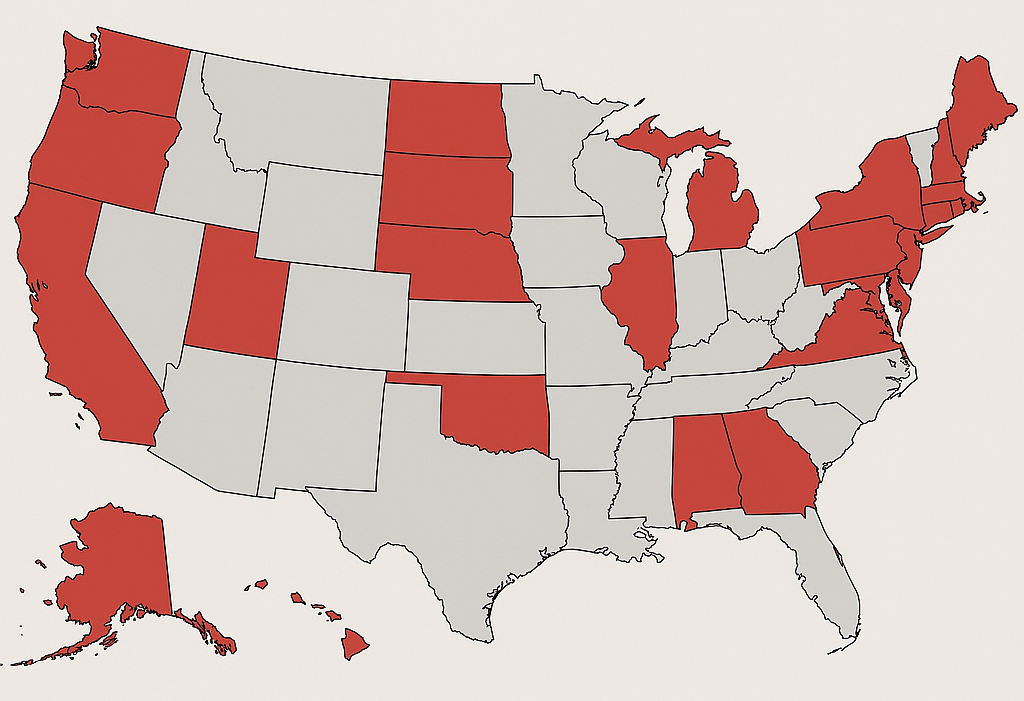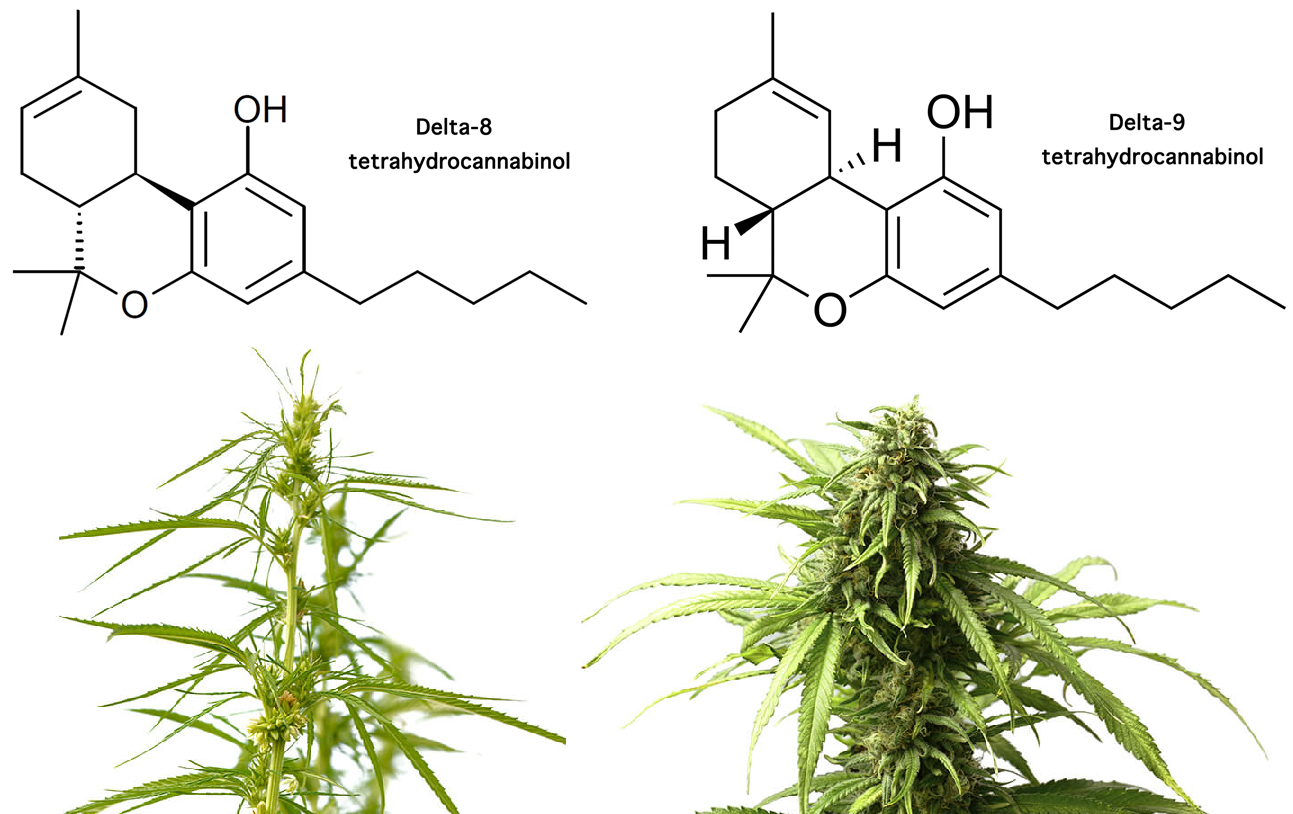Delta-8 and delta-9 THC are two forms of tetrahydrocannabinol, but while they share a similar chemical structure and effects, their legal status differ significantly.
Delta-9 THC is the primary psychoactive compound in marijuana, which is responsible for the “high” commonly associated with cannabis use. Delta-8 THC, found in much smaller amounts in hemp, produces similar effects but is generally considered to be less potent. Often referred to as a “legal high,” delta-8 has gained popularity in recent years due to its availability in more parts of the country, a result of the 2018 Farm Bill that legalized hemp and hemp-derived compounds.
The key chemical difference lies in the placement of a double bond on their carbon chains—delta-9’s is on the ninth carbon, while delta-8’s is on the eighth. This seemingly small variation results in weaker binding to cannabinoid receptors in the brain, making delta-8 less potent.
New Research on Delta-8 THC
Despite the above-mentioned difference between delta-8 and delta-9 THC, new research shows the two compounds aren’t too far apart. A recent clinical trial from Johns Hopkins University School of Medicine found that delta-8 THC can cause effects nearly identical to delta-9 THC when taken at higher doses. The study adds weight to ongoing debates about whether delta-8 should be regulated like marijuana or treated separately under hemp laws.
States That Ban or Restrict Delta-8 THC

States in red have banned or highly restricted delta-8 THC.
The legality of delta-8 THC remains one of the most confusing aspects for consumers. Under the 2018 Farm Bill, hemp-derived cannabinoids—including delta-8—were technically legalized at the federal level, so long as the product contains less than 0.3% delta-9 THC. However, many states have moved to ban or restrict delta-8 sales.
As of April 2025, the following states have made delta-8 THC illegal or significantly restricted its sale:
-
Alaska
-
Colorado
-
Delaware
-
Hawaii
-
Idaho
-
Iowa
-
Kansas
-
Massachusetts
-
Mississippi
-
Montana
-
Nevada
-
New Hampshire
-
New York
-
North Dakota
-
Oregon
-
Rhode Island
-
Utah
-
Vermont
-
Washington
-
West Virginia
In these states, delta-8 is either classified as a controlled substance or explicitly banned through state legislation or regulatory action. Some of these states, Iowa for example, banned delta-8 because they considered it a legal loophole to marijuana use, which is illegal in the state. Other states, like Washington, prohibit delta-8 sales so that they don’t compete with the state’s legal and highly taxed cannabis market.
In states like Michigan, Alabama, and Louisiana, they have imposed age restrictions, testing standards, or labeling requirements for delta-8 products, while allowing them to remain on the market. In Texas and Florida, delta-8 is legal but remains under legal scrutiny as state lawmakers consider tightening restrictions.
Where to Buy Delta-8 and Delta-9 THC
In states where delta-8 THC remains legal, it is widely available in smoke shops, gas stations, and convenience stores. It is also readily sold online. Because it is hemp-derived and not subject to the same regulatory oversight as marijuana, it remains accessible in many parts of the U.S. that have not legalized delta-9 THC.
Delta-9 THC, by contrast, is only legally sold in states that have legalized recreational marijuana. Currently, 23 states have enacted laws allowing licensed sales of marijuana products. Of those, 21 have already launched their legal retail markets. Delaware and Minnesota have also legalized marijuana, but sales have not yet begun in those states.








